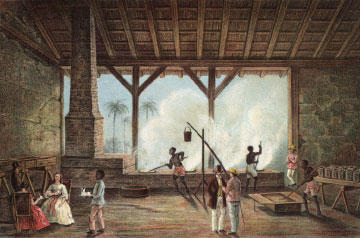Instructors: Alan Niles and Arianne Urus
Meeting time: Wednesday, 3-5:45
Syllabus

Our course studies the interlinking of European, African, and American continents in the “Atlantic World” in the period between Columbus’s voyages and the American, French, and Haitian Revolutions. The migration of people, animals, plants, commodities, and ideas produced a new era of globalization, transforming societies on all four continents and the land they lived on. Our course focuses on the large themes of migration, colonialism, capitalism, and slavery. We will cover topics such as Spanish-Aztec encounters, the Harvard Indian College, Caribbean sugar plantations, and the Middle Passage. We will read texts such as Daniel Defoe’s Robinson Crusoe, Olaudah Equiano’s Interesting Narrative, and the American Declaration of Independence. Throughout our course, we will seek to answer questions that include: how did large-scale processes of globalization play out at the level of everyday life? How did marginalized peoples respond to colonization and slavery, as well as the new circuits of wealth and power opened up through the integration of Atlantic economies? What are the legacies of this moment of globalization in the present day?
